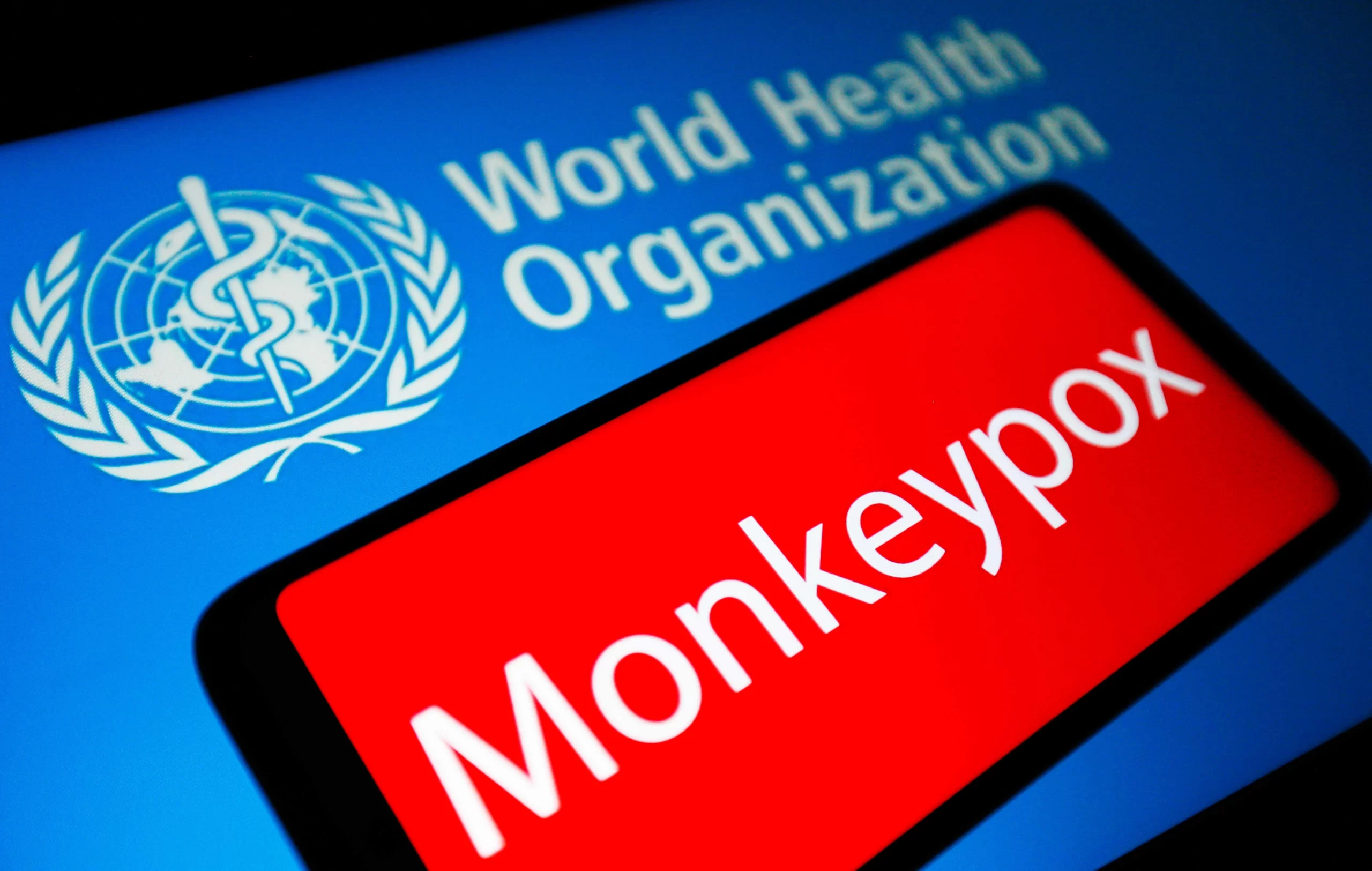Table of Contents
Understanding Monkeypox:
Have you ever asked yourself, “What is monkeypox?” Or maybe you’ve wondered how it spreads? Perhaps you’re even curious about its symptoms. The answers to these questions are crucial to understanding more about monkeypox, and in taking your first steps in avoiding this disease in this article we are going to take a step by step approach to understand what it is and what steps to outsmart Monkeypox disease.
Monkeypox is a rare viral disease that causes symptoms similar to but milder than smallpox. It originates from Central and West Africa but has been reported in other parts of the world as well. The virus spreads through close contact with infected animals or humans, typically through respiratory droplets.
Monkeypox symptoms include fever, headache, muscle aches, backache, swollen lymph nodes, chills, and exhaustion. A rash then develops, often beginning on the face and then spreading to other parts of the body. Intrigued about learning more? Let’s dive in!
Preventative Measures: Your Stronghold Against Monkeypox
Preventing monkeypox begins with a thorough understanding of the disease and the adoption of key health practices. So, “how can you avoid catching monkeypox?” Here are some vital steps to consider:
1. Avoid Contact with Infected Individuals:
Monkeypox can spread from person to person through body fluids, respiratory droplets, or skin contact with a patient’s rash or fluid from the rash. If you know someone who has contracted the disease, it’s crucial to avoid close contact unless you’re a healthcare provider equipped with the appropriate protective gear.
2. Use of Personal Protective Equipment (PPE):
If you’re a healthcare worker or are taking care of an infected person, ensure you’re wearing appropriate PPE. This includes protective clothing, gloves, masks, and eye shields. PPE acts as a barrier against the virus, significantly reducing the risk of infection.
3. Good Hand Hygiene:
Never underestimate the power of clean hands! Washing your hands frequently with soap and water for at least 20 seconds or using an alcohol-based hand sanitizer can eliminate potential traces of the virus.
4. Proper Respiratory Etiquette:
Practicing good respiratory etiquette, like covering your mouth and nose while sneezing or coughing, can help prevent the spread of monkeypox. It’s also advisable to avoid touching your face, especially your mouth, nose, and eyes, as these are entry points for the virus.
5. Safe Animal Practices:
If you live in an area where monkeypox is prevalent, be particularly cautious while handling animals. Avoid contact with animals that could potentially harbor the virus, especially rodents and monkeys. Also, refrain from consuming raw or undercooked meat is one of steps to outsmart Monkeypox.
6. Use of Recommended Products:
Using products that offer protection against monkeypox, such as disinfectants and sanitizers, can further shield you from the disease.
7. Stay Informed:
Staying updated about monkeypox outbreaks, especially in your area or areas you intend to travel to, can help you take necessary precautions.
Remember, taking these preventative measures can significantly reduce the chances of contracting monkeypox. Take charge of your health today!
Personal Hygiene: Your First Line of Defense Against Monkeypox
Personal hygiene plays a pivotal role in preventing the spread of infectious diseases like monkeypox. Adopting good hygiene practices can create a protective barrier against the virus. Here are some essential personal hygiene tips to help keep monkeypox at bay:
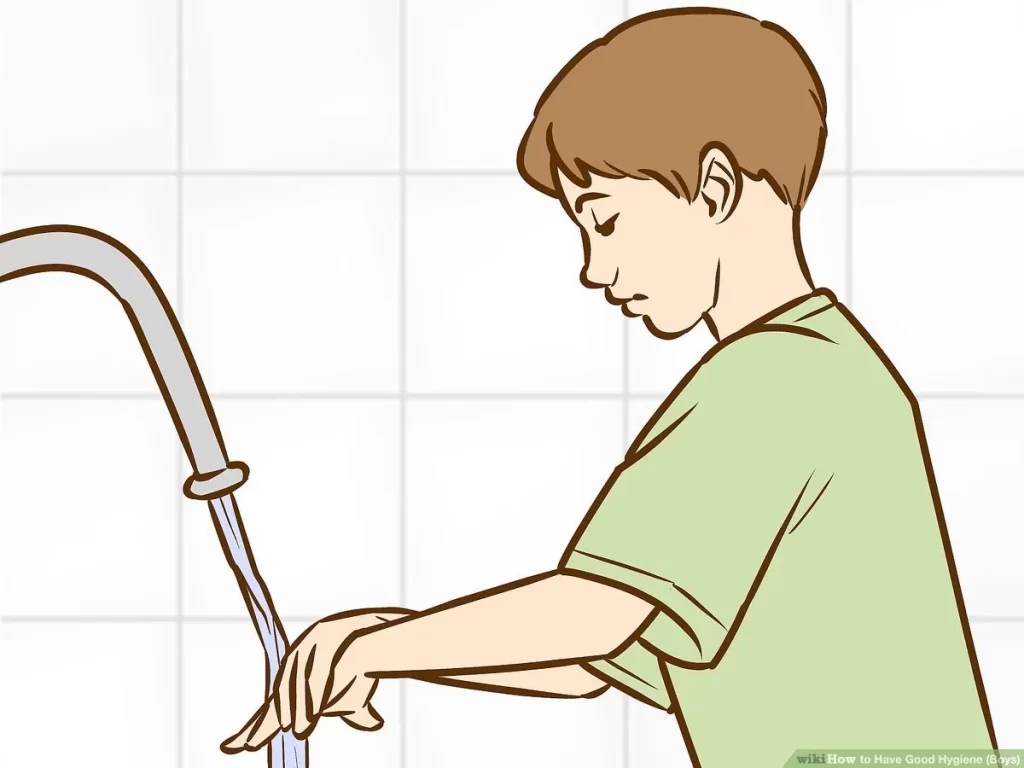
1. Frequent Hand Washing:
This can’t be emphasized enough! Washing your hands thoroughly with soap and water for at least 20 seconds can remove germs and prevent their spread. It’s particularly crucial to wash hands before eating, after using the bathroom, after coughing or sneezing, and after contact with animals or sick individuals.
2. Use of Sanitizers:
When soap and water aren’t readily available, alcohol-based hand sanitizers can be an effective alternative. Make sure the sanitizer contains at least 60% alcohol for optimum protection.
3. Respiratory Hygiene:
Covering your mouth and nose with a tissue or your elbow when you cough or sneeze can prevent the spread of respiratory droplets that may carry the virus. Don’t forget to dispose of used tissues properly and wash your hands afterward!
4. Avoid Touching the Face:
Our hands come into contact with various surfaces and can pick up germs. By avoiding touching your face, you reduce the chance of the virus entering your body through the eyes, nose, or mouth.
5. Keep Personal Items Personal:
Avoid sharing personal items such as towels, bedding, or eating utensils, especially with someone who’s sick. The virus can live on these surfaces and potentially spread to you.
6. Regular Bathing:
Taking regular baths can help remove germs from your skin, reducing the risk of infection. Remember to use a good antibacterial soap for an added layer of protection.
7. Safe Food Practices:
Practice good food hygiene by washing fruits and vegetables thoroughly and cooking meats thoroughly. Avoid consuming raw or undercooked meat is one of steps to outsmart Monkeypox.
8. Invest in Quality Hygiene Products:
Investing in quality hygiene products like soaps, sanitizers, disinfectants, and tissues can greatly aid in maintaining good personal hygiene.
Adopting these hygiene practices is a simple yet effective way to safeguard your health and those around you. Remember, your hygiene habits can be a strong shield against monkeypox and other infectious diseases. Stay clean, stay healthy!
Healthy Eating and Immunity: Your Natural Armor Against Monkeypox
A healthy diet is not just good for your body; it’s crucial for your immune system too. Food plays a vital role in strengthening your immunity and helps your body fight off harmful pathogens, including viruses like monkeypox. So, what are the foods that boost your immune system, and how can you include them in your diet?
1. Eat Plenty of Fruits and Vegetables:
Fruits and vegetables are rich in vitamins, minerals, and antioxidants that boost your immune system. Vitamin C, found in citrus fruits like oranges, lemons, and grapefruits, can enhance immune function. Vegetables like broccoli, spinach, and bell peppers are also packed with nutrients that support immunity.

2. Include More Protein:
Proteins are essential for your immune system. Foods rich in protein, such as lean meat, poultry, fish, eggs, dairy products, nuts, and seeds, contain immune-boosting nutrients like zinc and vitamin B6.
3. Don’t Forget About Probiotics:
Probiotics, found in fermented foods like yogurt, kefir, sauerkraut, and kimchi, can strengthen the immune system by enhancing the gut microbiome. A healthy gut microbiome is vital for your overall health, including your immune system.
4. Stay Hydrated:
Hydration doesn’t necessarily protect you from germs and viruses, but preventing dehydration is essential to your overall health. Water helps all of your body’s systems function at optimal levels.
5. Limit Added Sugars:
High amounts of sugar in your diet can lead to obesity, type 2 diabetes, and heart disease, all of which can suppress your immune system. Therefore, limiting your sugar intake can help keep your immunity strong.
6. Nutrition Supplements:
In addition to a balanced diet, certain nutrition supplements can also help improve your immune response. Supplements like vitamins C, D, E, zinc, selenium, and probiotics can be beneficial. However, it’s important to remember that supplements should not replace a healthy diet, and it’s always advisable to consult a healthcare provider before starting any new supplement regimen.
A nutritious diet, coupled with regular exercise, adequate sleep, and good hydration, can significantly bolster your immunity. Remember, maintaining a strong immune system is one of the most effective strategies for preventing infections like monkeypox. Eat healthy to stay healthy!
Travel Precautions: Your Roadmap to Safe and Healthy Journeys
Travelling, whether for leisure or work, can sometimes expose you to different health risks, including diseases like monkeypox, particularly when visiting areas where such diseases are prevalent. So, how can you stay safe while on the move? Here are some travel precautions you should consider:
1. Stay Informed:
Before travelling, research about the health risks in your destination. Are there recent monkeypox outbreaks or other health advisories you should be aware of? Knowledge about potential health risks can guide you in taking necessary precautions.
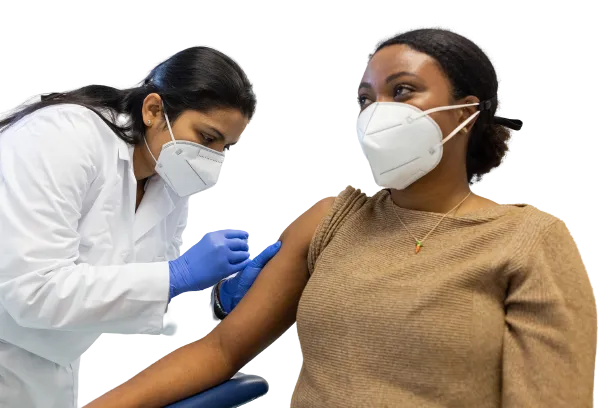
2. Get Vaccinated:
Vaccination is one of the most effective ways to protect yourself from diseases. If there’s a vaccine available for monkeypox, consider getting it, especially if you’re travelling to an area where the disease is prevalent.
3. Pack a Health Kit:
A travel health kit can be a lifesaver. Pack essentials like hand sanitizers, disinfectant wipes, masks, first-aid supplies, prescription medicines, and insect repellent. If you’re going to a region where monkeypox is known to occur, protective gloves might also be a good addition to your kit.
4. Practice Good Hygiene:
Whether you’re on an airplane or in a hotel room, practicing good hygiene is crucial. Wash your hands regularly, avoid touching your face, and keep your environment clean with disinfectant wipes is one of steps to outsmart Monkeypox.
5. Be Cautious with Food and Water:
In some regions, food and water can carry diseases. To stay safe, opt for bottled water, and ensure your food is well-cooked.
6. Avoid Close Contact with Sick Individuals:
If someone around you is visibly sick or shows symptoms of monkeypox, try to maintain a safe distance.
7. Avoid Contact with Animals:
In regions where monkeypox is prevalent, avoid contact with animals, particularly rodents and monkeys. They may carry the virus and could potentially infect you.
8. Health Insurance:
Before travelling, ensure you have adequate health insurance that covers medical care abroad and medical evacuation, if necessary.
Remember, staying healthy while travelling requires awareness and precautions. Whether it’s getting the necessary vaccines, practicing good hygiene, or maintaining a safe distance from animals, every step you take brings you closer to a safer journey. Happy and safe travels!
Animal Handling: Safe Practices for a Healthier Coexistence
If you’re a pet owner, wildlife enthusiast, or living in an area with abundant wildlife, it’s crucial to understand safe animal handling practices. After all, diseases like monkeypox can spread from animals to humans. Here are some key precautions to consider when dealing with animals:
1. Use Protective Gloves:
When handling animals, particularly those in areas where monkeypox is prevalent, consider wearing protective gloves. Gloves provide a barrier against potential exposure to the virus and other harmful pathogens.
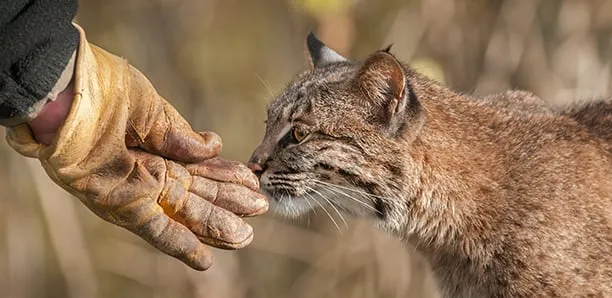
2. Keep Your Distance:
If an animal is sick or behaving unusually, it’s best to keep your distance. Remember, monkeypox can spread from animals like rodents or monkeys to humans.
3. Regular Veterinary Check-ups:
If you have pets, regular veterinary check-ups can help identify any health issues early, reducing the risk of disease spread.
4. Proper Hygiene:
After handling animals, wash your hands thoroughly with soap and water. This simple step can remove potentially harmful microbes, including the monkeypox virus is one of steps to outsmart Monkeypox.
5. Avoid Consumption of Raw or Undercooked Animal Products:
Cook animal products thoroughly before consumption. Proper cooking kills viruses and other pathogens that can lead to diseases.
6. Educate Yourself and Others:
Learn about the diseases that the animals in your community could carry, and share this knowledge with others. Increased awareness can lead to more proactive actions in disease prevention.
7. Report Sick Animals:
If you notice animals that are sick or dead without a clear cause, report this to local animal control or public health officials. They can take necessary actions to prevent the spread of diseases.
8. Vaccinate Your Pets:
While there isn’t a specific vaccine for pets against monkeypox, ensuring your pets are up-to-date on their vaccines can keep them healthier, reducing their susceptibility to various diseases.
Remember, your safety and the animal’s well-being go hand in hand. Respectful, informed, and cautious handling of animals can lead to a healthier environment for us all. Let’s foster a world where humans and animals live together in harmony!
Healthcare Precautions: Shielding the Frontline Against Monkeypox
Healthcare workers are the frontline heroes in the battle against diseases like monkeypox. They often come in direct contact with infected patients, making them particularly susceptible to the virus. Here are some critical precautions that healthcare providers can take to protect themselves and their patients:
1. Use Personal Protective Equipment (PPE):
The use of PPE, such as gloves, gowns, masks, and eye protection, is crucial when dealing with suspected or confirmed cases of monkeypox. PPE forms a physical barrier between the healthcare worker and the virus, significantly reducing the risk of infection.
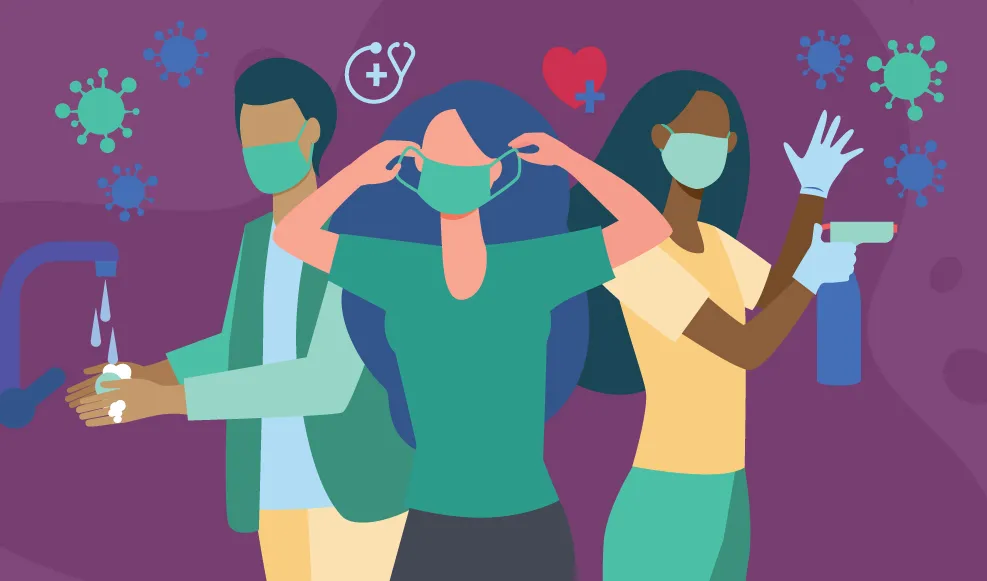
2. Hand Hygiene:
Regular hand hygiene is a must. This includes washing hands with soap and water for at least 20 seconds or using an alcohol-based hand sanitizer. Hands should be cleaned before and after each patient interaction, after removing PPE, and after contact with potentially contaminated surfaces.
3. Safe Injection Practices:
Using safe injection practices, including the use of sterile, single-use, or disposable needles and syringes, can prevent the transmission of the monkeypox virus.
4. Proper Disposal of Medical Waste:
Dispose of medical waste, including used PPE and disposable items, according to local regulations and guidelines. This can prevent the virus from spreading to other areas or individuals.
5. Isolation of Patients:
Patients with suspected or confirmed monkeypox should be isolated from other patients to prevent the spread of the virus. Use separate rooms or partitions whenever possible, and limit the number of healthcare workers interacting with the patient.
6. Follow Standard Operating Procedures (SOPs):
Healthcare facilities should have SOPs for managing infectious diseases, including monkeypox. These should cover everything from patient care and waste disposal to cleaning and disinfecting the healthcare facility.
7. Vaccination:
If a vaccine for monkeypox is available, healthcare workers, especially those in high-risk areas, should consider getting vaccinated.
Remember, being a healthcare provider comes with the responsibility of not only caring for the sick but also protecting oneself and others from potential health risks. These precautions can significantly reduce the risk of healthcare-associated transmission of monkeypox. Stay protected, and continue the invaluable work you do!
Disinfecting Home and Workplace: Building Safe Spaces Against Monkeypox
Your home and workplace are the environments where you spend a significant amount of your time. Maintaining cleanliness and regularly disinfecting these spaces can significantly reduce the risk of diseases like monkeypox. Here are some pointers on how you can disinfect your home and workplace effectively:
1. Regular Cleaning:
Regular cleaning of surfaces with soap or detergent and water is the first step in reducing the number of germs and dirt on surfaces. High-touch surfaces such as doorknobs, light switches, remote controls, and phones should be cleaned more frequently.
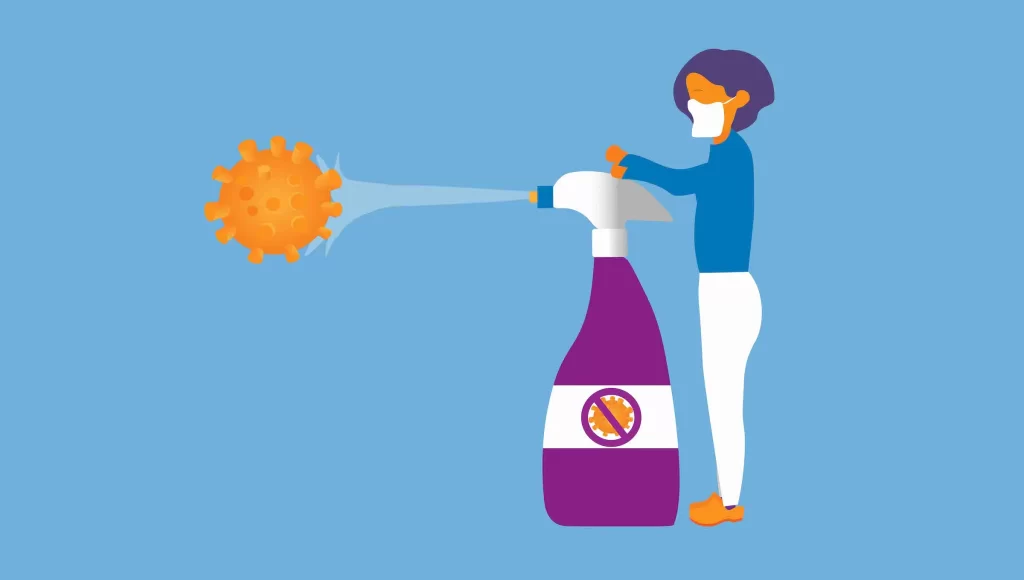
2. Use of Effective Disinfectants:
After cleaning, apply an appropriate disinfectant to kill any remaining germs. Look for products that have been approved for use against the virus that causes monkeypox or similar viruses.
3. Correct Use of Disinfectants:
Follow the instructions on the disinfectant’s label closely. Most disinfectants need to remain on a surface for a certain period to kill germs effectively.
4. Proper Ventilation:
While using disinfectants, make sure your home or workplace is properly ventilated. Some disinfectants can be harmful if inhaled, so it’s important to use them in a well-ventilated area.
5. Safe Disposal of Waste:
Dispose of your waste correctly. If you’re dealing with potentially contaminated items, like tissues used by a sick person, make sure you dispose of them in a sealed bag.
6. Personal Items Should Stay Personal:
Avoid sharing personal items such as towels, bedding, or eating utensils, as these can harbor germs.
7. Maintain Personal Hygiene:
Remember, disinfecting your surroundings alone is not enough. Maintain good personal hygiene, including frequent handwashing and avoiding touching your face.
8. Promote a Culture of Cleanliness:
At workplaces, encourage your colleagues to maintain cleanliness and use disinfectants regularly. Provide easy access to cleaning supplies and hand sanitizers.
By regularly and effectively disinfecting your home and workplace, you can create environments that are less conducive to the spread of diseases like monkeypox. Remember, cleanliness is not just about aesthetics; it’s a crucial aspect of disease prevention. Stay clean, stay safe!
Educational Materials and Awareness: Lighting the Path to Monkeypox Prevention
Education and awareness play an instrumental role in disease prevention, including monkeypox. Understanding the disease, how it spreads, its symptoms, and preventative measures, can significantly reduce the chances of outbreaks. So, how can we raise awareness and educate our communities about monkeypox? Here are some strategies:
1. Leverage Various Media Platforms:
Information can be disseminated through a variety of media platforms, such as television, radio, newspapers, and the internet. Social media platforms can also be instrumental in spreading awareness quickly and broadly.
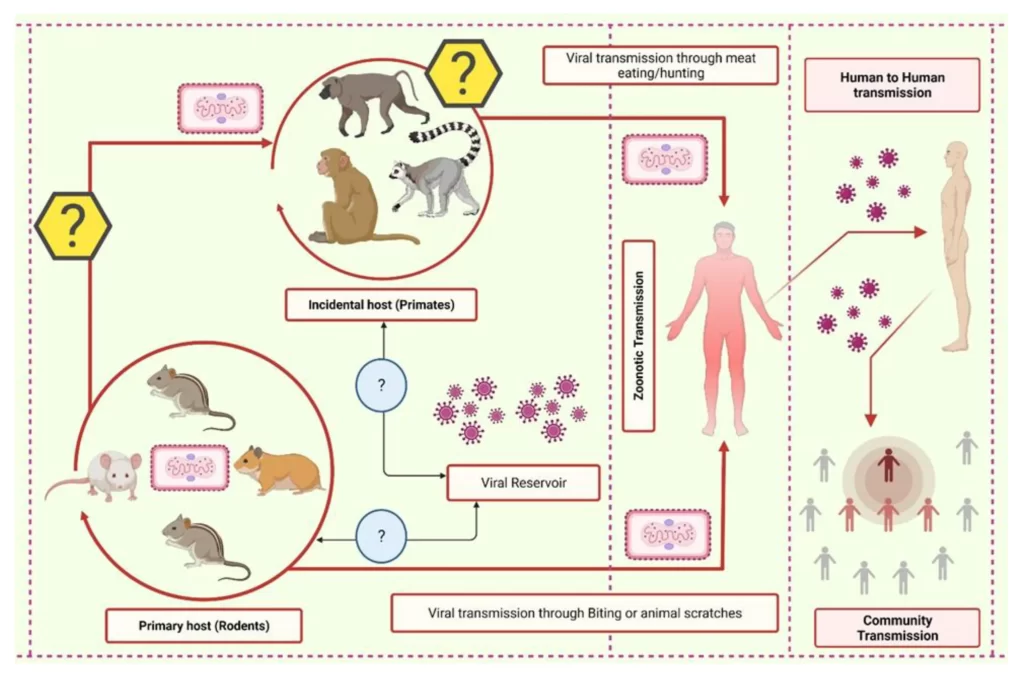
2. Use of Educational Materials:
Pamphlets, brochures, posters, and infographics can be effective tools for disseminating critical information about monkeypox. They should be clear, concise, and engaging, making complex information easier to understand.
3. Organize Information Sessions and Workshops:
Invite healthcare professionals to give talks or organize workshops in community centers, schools, or workplaces. This not only educates people but also provides a platform for them to ask questions and clear any misconceptions.
4. Promote Preventative Measures:
Education about preventative measures, such as hygiene practices, vaccination, and safe animal handling, should be prioritized. This equips individuals with practical knowledge that they can apply in their daily lives to avoid infection.
5. Develop Curriculum for Schools:
Including information about monkeypox and other infectious diseases in the school curriculum can help children understand these diseases from a young age. This instills healthy habits early on and can also help in spreading awareness among families.
6. Collaborate with Local Health Departments:
Collaborating with local health departments can help in obtaining accurate information and resources. They can also support larger scale community education campaigns.
7. Provide Resources for Teachers and Community Leaders:
Equip teachers, community leaders, and other influencers with the resources and knowledge they need to educate others about monkeypox.
Remember, knowledge is power. The more people know about monkeypox, the better equipped they are to prevent it. Let’s spread knowledge, not diseases!
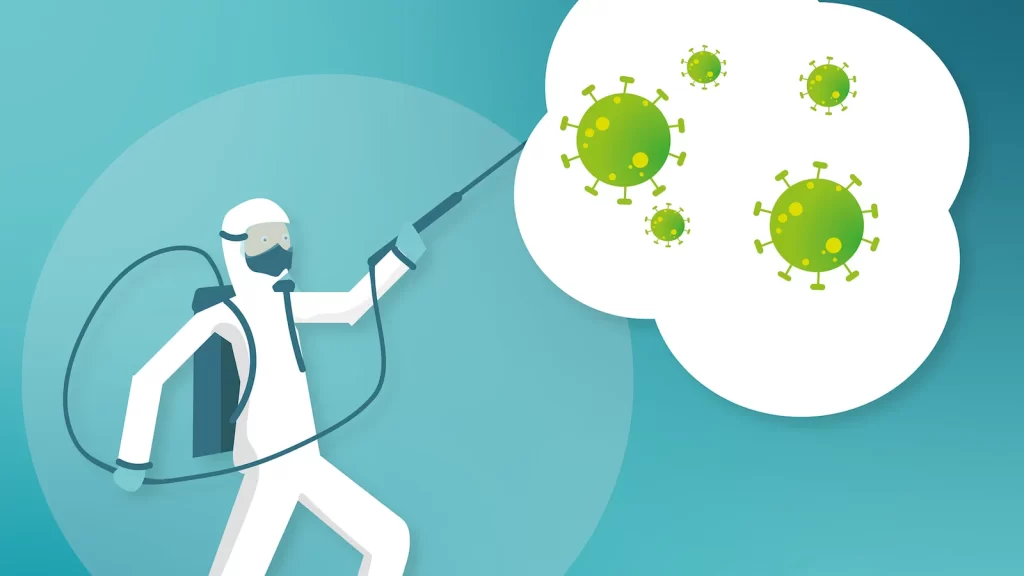
Vaccination and Medical Consultation: Winning Strategies Against Monkeypox
Vaccination and timely medical consultation are two key factors in the fight against infectious diseases like monkeypox. Understanding these elements can not only protect you from the disease but also aid in controlling its spread. Let’s delve deeper into these critical steps:
1. Vaccination: The Proactive Shield
As of my last knowledge update in September 2021, there isn’t a specific vaccine available to the general public for monkeypox. However, the smallpox vaccine has been shown to reduce the risk of monkeypox and its severity. Vaccines stimulate your immune system to produce a response against a specific virus, preparing your body to fight the actual virus if you’re exposed to it later.
Always stay updated on the latest developments regarding vaccinations for monkeypox or similar diseases. Consult your healthcare provider to understand which vaccinations may be right for you, especially if you’re travelling to an area where monkeypox is prevalent.
2. Medical Consultation: Early Detection, Better Protection
If you’re feeling unwell and showing symptoms similar to monkeypox, seek medical help promptly. Early diagnosis can lead to timely treatment, potentially reducing the severity of the disease and limiting its spread.
Remember, symptoms of monkeypox may include fever, headache, muscle aches, backache, swollen lymph nodes, chills, and exhaustion. A rash then develops, often beginning on the face and then spreading to other parts of the body.
3. Regular Health Check-ups
Regular health check-ups can help in early detection of health issues, even before they start to show noticeable symptoms. This can be especially important for individuals with underlying health conditions, as they might be more susceptible to severe symptoms of diseases like monkeypox.
4. Follow Medical Advice
Once you’ve consulted a healthcare provider, it’s essential to follow their advice. This could involve taking prescribed medications, following specific hygiene practices, isolating yourself, or even getting hospitalized, depending on the severity of your symptoms.
5. Post-recovery Consultations
After recovering from monkeypox, schedule a post-recovery check-up with your healthcare provider. This is to ensure that you’ve fully recovered and to evaluate any potential long-term effects of the disease.
Remember, vaccination and medical consultation play vital roles in safeguarding your health and those around you. A proactive approach to your health is the best defense against diseases like monkeypox. Stay alert, stay safe, and keep the world safer too!
Animal Handling: Expert Advice for Safety
If you’re fond of animals or live in a place where wildlife is abundant, knowing the right precautions for handling animals can be essential. Did you know that monkeypox can spread from animals, particularly rodents and monkeys, to humans? So, if you’re in an area where monkeypox is prevalent, consider using protective gloves when handling animals. More so, avoid handling sick animals or consuming their meat to minimize the risk of infection.
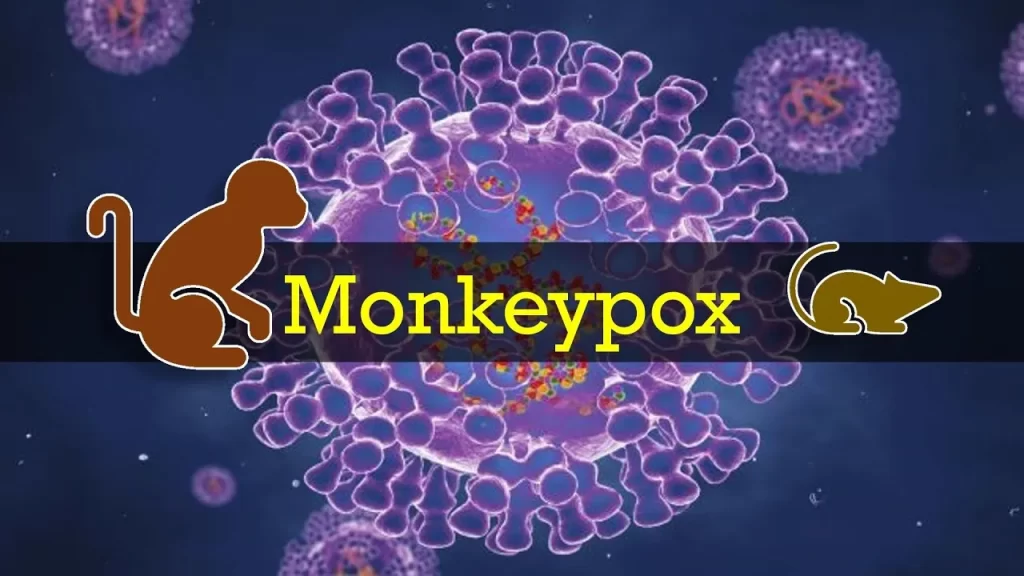
Healthcare Precautions: A Necessity for Frontliners
Healthcare workers are at the frontlines, facing higher risks of contracting diseases like monkeypox. To protect these heroes, specific healthcare products and rigorous procedures are put in place. Personal Protective Equipment (PPE) and sterilized medical tools are essential to prevent the spread of the disease in healthcare settings. Additionally, constant monitoring of healthcare workers’ health status and vaccination can significantly reduce the risk.
Disinfecting Home and Workplace: A Proactive Approach to Safety
Ever wondered, “How can I disinfect my home or workplace against monkeypox?” It’s simpler than you might think! Regular cleaning of surfaces with EPA-approved disinfectants can keep your living and working environments safe. Not sure what kind of disinfectant products to use? Check out our range of trusted disinfectants designed to keep your spaces germ-free!
Educational Materials and Awareness: Ignorance Is Not Bliss
Think about it – don’t you feel more empowered when you know more about what you’re dealing with? That’s why we firmly believe in the power of education. Our range of educational materials on monkeypox can provide you and your community the knowledge needed to fight this disease. From understanding the disease to learning prevention methods, it’s time to educate and elevate!
Vaccination and Medical Consultation: A Shield Against Monkeypox
Have you ever asked, “Should I get a vaccine for monkeypox?” Yes, absolutely, especially if you live in or plan to travel to an area where monkeypox is prevalent. Vaccination, coupled with regular medical consultation, can serve as a robust shield against monkeypox. It’s time to act and protect yourself with our recommended health services for monkeypox vaccination.
Frequently asked questions: Monkeypox
In the pursuit of understanding Monkeypox, treatment as well as how to prevent it in the unique context of South Africa, many questions frequently arise. To address these inquiries, we’ve compiled a list of the 10 most commonly asked questions about this subject.
What is monkeypox?
Monkeypox is a rare but serious viral illness that can be transmitted from animals to humans and from person to person. It is caused by the monkeypox virus, which is related to the smallpox virus.
What are the symptoms of monkeypox?
The symptoms of monkeypox are similar to those of smallpox, but they are usually milder. The first symptoms of monkeypox are fever, headache, muscle aches, backache, respiratory symptoms (congestion and cough), and exhaustion. Within 1-3 days of the onset of fever, the patient may develop a rash, which often starts on the face and then spreads to other parts of the body. The rash is usually flat and red at first, but it can become raised and filled with fluid. The rash may be painful or itchy.
How is monkeypox spread?
Monkeypox can be spread from animals to humans through contact with the blood or body fluids of an infected animal. It can also be spread from person to person through contact with the respiratory droplets produced when an infected person coughs or sneezes. Monkeypox can also be spread through contact with the fluid from the rash of an infected person.
How can I protect myself from monkeypox?
There is no vaccine specifically for monkeypox, but the smallpox vaccine can be used to protect against monkeypox. The smallpox vaccine is about 85% effective in preventing monkeypox. You can also protect yourself from monkeypox by avoiding contact with animals that may be infected with the virus. If you do come into contact with an animal that may be infected with the virus, wash your hands thoroughly with soap and water. If you think you may have been exposed to monkeypox, contact your doctor immediately.
What should I do if I think I have monkeypox?
If you think you may have monkeypox, contact your doctor immediately. Do not travel to other countries until you have been evaluated by a doctor and have been diagnosed with monkeypox.
How is monkeypox diagnosed?
Monkeypox can be diagnosed by a blood test or by testing a sample of the rash.
How is monkeypox treated?
There is no specific treatment for monkeypox. Treatment is supportive and includes measures to relieve symptoms such as fever, pain, and itching. In some cases, antiviral medications may be used to treat monkeypox.
How long does monkeypox last?
The symptoms of monkeypox usually last for 2-4 weeks. However, some people may have symptoms for longer than 4 weeks.
How serious is monkeypox?
Most people who get monkeypox recover without any complications. However, the virus can be serious in some people, especially young children, people with weakened immune systems, and pregnant women.
What is the risk of monkeypox spreading in South Africa?
The risk of monkeypox spreading in South Africa is low. However, there have been a few cases of monkeypox reported in the country. The South African government is working to prevent the spread of monkeypox by monitoring the situation and providing information to the public.
We hope this list offers you valuable insights into Monkypox. By addressing these common questions, we aim to assist you in your journey towards a healthier heart and overall wellbeing.
Final Thought
To wrap up our discussion, the process of safeguarding oneself from monkeypox necessitates a series of steps that, when followed together, can greatly reduce the risk of contracting the disease. The first step entails the preservation of personal hygiene. This is critical because it helps to limit the transmission of the virus. Washing your hands regularly, avoiding close contact with potentially infected individuals, and taking care to avoid exposure to the virus in wildlife are all vital components of this process.
Next, the importance of maintaining a balanced diet cannot be overstated. A well-rounded diet fortified with a variety of nutrients, vitamins, and minerals can enhance your immune system’s performance, thus equipping your body with the necessary defenses to fend off such infections as monkeypox.
Moreover, in the age of global travel, it’s essential to be mindful of the risks and take the necessary precautions when visiting areas known to have had instances of the monkeypox virus. This could involve being aware of the local wildlife, avoiding regions with recent outbreaks, and understanding the appropriate actions to take if exposure is suspected.
Lastly, receiving the recommended vaccinations is a key element of prevention. Although there isn’t a specific vaccine for monkeypox as of my knowledge cutoff in September 2021, the smallpox vaccine has been found to provide some degree of protection.
Always bear in mind that your health should be viewed as an investment rather than an expense. It’s the pillar that supports all other aspects of your life, and investing time and effort into maintaining it will yield significant dividends in the long run. Together, let us embark on this journey of achieving and sustaining better health, arming ourselves with knowledge and taking the necessary actions to ward off ailments such as monkeypox.
